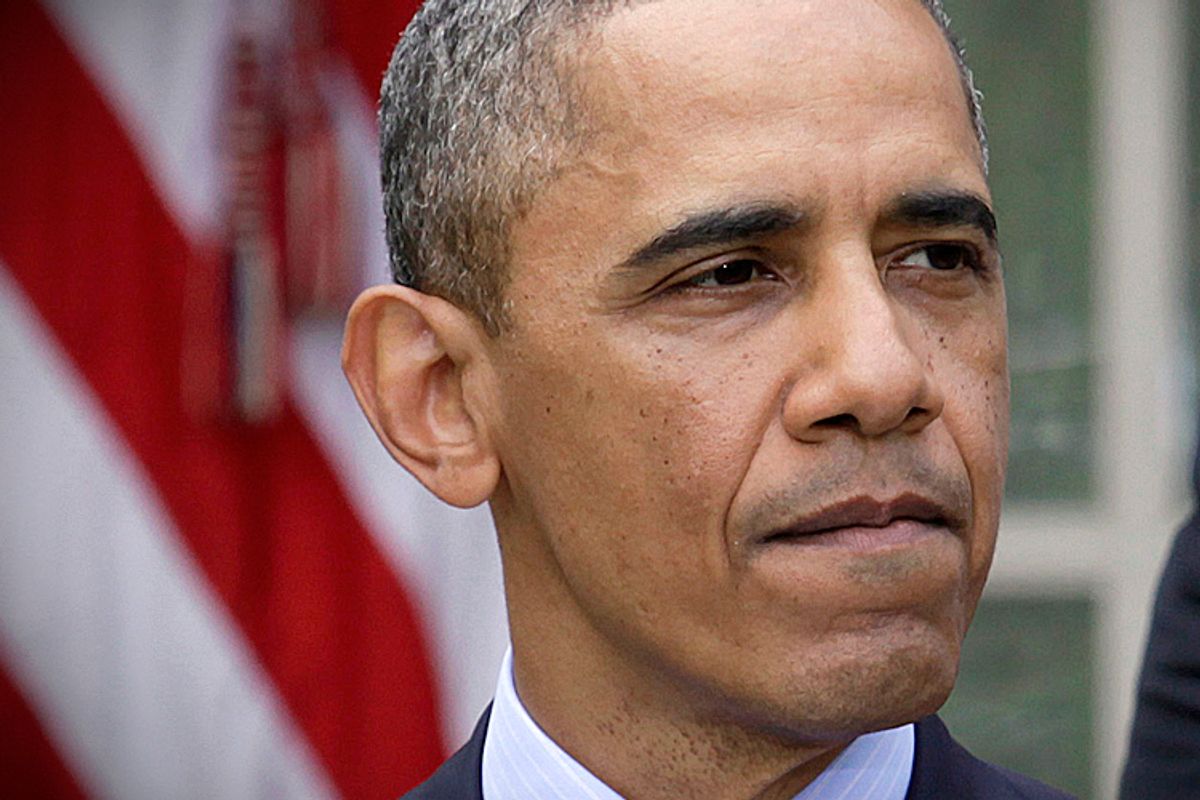Demands by politicians and pundits for intervention in Syria have become so strong that they now seem to be influencing U.S. policy. But are they right? The most emotionally powerful arguments came from the State Department former policy planning head Anne-Marie Slaughter. The Obama administration is in danger of letting genocide akin to the one in Rwanda in the 1990s occur, she wrote, in the Washington Post. The case of Rwanda haunts Democrats. Former Secretary of State Madeleine Albright called not saving Rwandans her “greatest regret” from her time in office, “something that sits very heavy on all our souls.” U.N. ambassador Susan Rice has similarly expressed agony over U.S. failure to intervene in Rwanda.
It is important to recall, however, exactly what the United States could have done to avert the Rwandan genocide. According to Alan Kuperman, a professor at the University of Texas at Austin and author of "The Limits of Humanitarian Intervention: Genocide in Rwanda," the answer is: not much. Little could have been accomplished by outsiders to spare civilians. Kuperman estimates that at best Western forces would have been unable to save 75 percent of those killed in Rwanda. Why? Because after the first month of violence, the United Nations authorized a military intervention, in May 1994 — but by the time international reinforcements arrived, in late June, the genocide was virtually over. Certainly saving 25 percent of a people being slaughtered is still a compelling rationale, but it’s a far cry from saying the entire genocide could have been averted or saved via intervention. Simply put, practical obstacles prevented any chance of timely intervention.
More generally, a significant body of international-relations scholarship suggests that not only can outside intervention in humanitarian emergencies in places like Rwanda not ameliorate the situation — it can actually make things worse. Even simply dispensing aid can prolong suffering, in what the former Doctors Without Borders leader Fiona Terry calls “the paradox of humanitarian action.”
Why are humanitarian interventions so difficult? Kuperman theorizes that when rebels are assisted by outside forces, they are unintentionally encouraged to become more reckless in fighting a regime or provoking it, resist negotiations, and expand their ambitions. Intervention can thereby produce a perverse situation of prolonging a conflict that results in more deaths. He calls this the “moral hazard of humanitarian intervention.” Even the expectation or the mistaken belief of outside support can encourage rebels to continue fighting or resist settlements.
“In practice, intervention does sometimes help rebels attain their goals, but usually it is too late or inadequate to avert retaliation against civilians,” writes Kuperman. An example of this would be when during and after the Gulf War the first Bush administration called on Iraqi citizens to overthrow Saddam Hussein. Once Iraqis attempted to do precisely that, the Bush administration realized it was unwilling to provide the rebels with the necessary support. Hussein then crushed the rebels, killing thousands of civilians who might otherwise have been spared had the Bush team not encouraged an uprising.
Right now, the U.S. public is overwhelmingly hostile to military intervention in Syria. Kuperman speculates that what had previously been a nonviolent uprising in Syria in early 2011 became an armed rebellion when Syrians saw that the U.S. supported Libyan rebels. “I think the Syrians were looking at this and saying, ‘Hey, we’ve been peaceful and getting nothing while the Libyans got outside help,’” he says. As a result of the Syrian opposition transforming their methods from nonviolent to an armed rebellion, the death toll has increased approximately 15 times per week, estimates Kuperman.
Of course, this does not necessarily mean all humanitarian interventions should be avoided. Kuperman believes that America should get involved in humanitarian operations when not rebels but masses of civilians are being deliberately targeted for death by a government. Intervening once an armed rebellion has already begun means intervening in a civil war, an act that frequently encourages both sides to escalate the conflict.
It should also be noted that these are purely discussions of humanitarian interventions, divorced from considerations about American interests. For the U.S. in the Middle East, there are no good options: Non-intervention spurs resentment at perceived American indifference to suffering; intervention spurs resentment at perceived American meddling. Encouraging negotiations means discouraging grand ambitions; supporting one side means alienating another. The toxic history of American and Western imperialism in the Middle East means that for a long time, the U.S. is simply going to be disliked in the Middle East. As George Washington University professor Marc Lynch puts it in the latest issue of Foreign Affairs, “In the Middle East, haters gonna hate.”
The humanitarian impulse is a noble one, spurred by good intentions. But good intentions, even if they don’t pave the road to hell, can sometimes take us a good way there. Those calling for intervention in Syria should seriously consider the possibility that outside interference may be counterproductive.



Shares